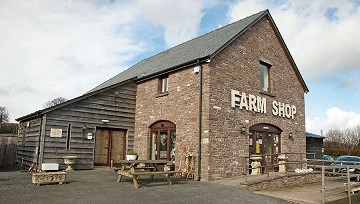Farndon Fields tell us how to sell food and drink to the public


Choosing to sell directly to the public is a striking opportunity for farmers who are looking to capture more value of their produce - and there is room in the market for businesses of all different sizes.
Milly Stokes, the former chairman of the Farm Retail Association explained that membership of the organisation is increasing as more farmers look into the growing appetite from consumers for locally produced, high-quality food and drink.
Mrs Stokes stated that farmers who are considering getting involved start small by selling at farmers’ markets or from their back door. It said this is a good way of finding a profitable niche that other businesses have not yet tapped into.
This will allow extremely valuable instant feedback from consumers on fledging ideas, allowing knowledgeable choices to be made about how to modify products or even whether to pursue them before spending significant sums of cash.
She explained “Deciding when to expand the business and invest in premises and take on staff – as well as increasing the number and variety of goods sold – is a complex decision that will bring new challenges as well as rewards”.
This can include developing the skills to deal with customers and staff on a full-time basis, which many farmers may have to learn from scratch, as well as staying up-to-date with constant change in consumer trends and demands.
At Farndon Fields farm shop which is located near Market Harborough, Milly and her husband Kevin have built their business for over 34 years. Their business has grown over the years from selling potatoes at their farmhouse front door to a shop selling 40 types of fruit and vegetables and a 150-seat restaurant.
Nevertheless, Farndon Fields and all other successful farm shops remain to obey to one simple principle- they must give consumers a reason to travel to them when other supermarket retailers are often more suitable.
In recent years one of the key challenges has been the increase of discount retailers- including Aldi and Lidl- which Mrs Stokes says often attract similar type of customers to farm shops.
Mrs Stokes stated that it will always be a test to compete with them on price, she says it is vital to tell customers what your business can do better, this can include longer shelf life for fresh products as they come straight from the field, which means less packaging and no additives.
However, small businesses can also outcompete on hi-tech fronts, this can be done by dry-ageing meat, something consumers are willing to pay a premium for but supermarkets are not able to do this as it is not well-suited with vacuum packaging.



































